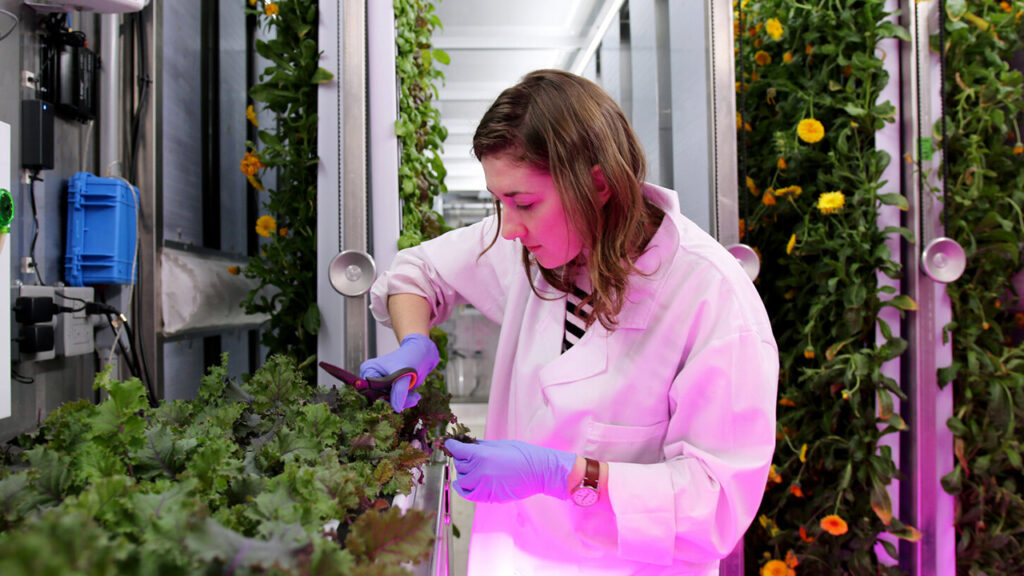Freight Farms: Success Story

Creating a global infrastructure to revolutionize local access to food
Grow hyper-local food, anywhere with the smartest container farm
Freight Farms is manufacturing a climate-controlled, vertical, hydroponic farm that thrives within an insulated, custom-built shipping container. This modular and scalable growing platform makes it possible to grow food anywhere in the world, regardless of the climate – promoting equitable access to fresh produce. Empowering local cultivation and growth of fresh food, particularly in urban areas where fresh produce may be lacking or difficult to access and space to grow produce is limited is a vital part of the Freight Farms mission. Since 2016, they have been working with international farmers and businesses across 28 different countries worldwide.
In 2020, Ospraie Ag Science, an investment firm committed to supporting sustainable solutions in agriculture, led a $15 million series B investment in Freight Farms to accelerate market expansion and fuel new technology innovation for global networks of farmers.
Freight Farms’ impact: The Greenery
The co-founders of Freight Farms, Brad McNamara and Jon Friedman, first developed the idea of farming in shipping containers in 2010, and it has grown into a new category within the indoor farming industry. These hydroponic farms fit in a typical 320 square feet of a shipping container, making vertical farming more accessible and economically viable for anyone who wants to grow fresh food for their community, regardless of geographic location. Using LED lights and water, the Greenery does not require any sun or soil to grow their fresh produce. It features two interior zones, the Nursery Station, a seedling starter that provides plants with perfect condition in their first weeks, and the flexible Cultivation Area, where crops grow to maturity.
Freight Farms’ main customer base includes small business owners, corporations, non-profit organizations, and municipalities. With promotion of food equity and integration priorities for the Freight Farms team, they have also started working with schools to integrate these topics in their curriculum. In order to make farming accessible across populations, Freight Farms has developed the Farmhand, a software platform that allows hydroponic growers to remotely control farm components and analyze growing data.
Greenery is at the Lotus House in Miami, Florida, a holistic residential facility for women and children experiencing homelessness. In 2019, Freight Farms added one of their Greenery container farms at the Lotus House community as an extra resource for these women and children to learn, plant, and eat from!
“When you’re building a product that’s never been built, it’s best to build it locally. You’ll build your product faster, you’ll save money on travel, and you’ll strengthen your local economy.”
– Dan Marino, Director of Manufacturing
FORGE Impact: scaling up internationally
Freight Farms initially came to FORGE because they needed a new contract manufacturer that could build their unique, large-scale product and help them expand their ability to support more international markets. They also needed manufacturers that would help them transition from their domestic model to an international one. FORGE was able to connect them with Kalow Technologies, an electromechanical assembly contract manufacturer shop in Rutland, Vermont, in order to assist them in building their international model farms. This has helped Freight Farms grow their brand and product internationally.
So the next time you are wondering about produce sourcing, whether it be how to address the nation’s food deserts or if lunch is local, look for the big green freight container. Your veggies could be sourced only a few feet away! FORGE is proud to support companies like Freight Farms, who are solving some of the world’s toughest problems, and looks forward to watching their success grow – literally.
